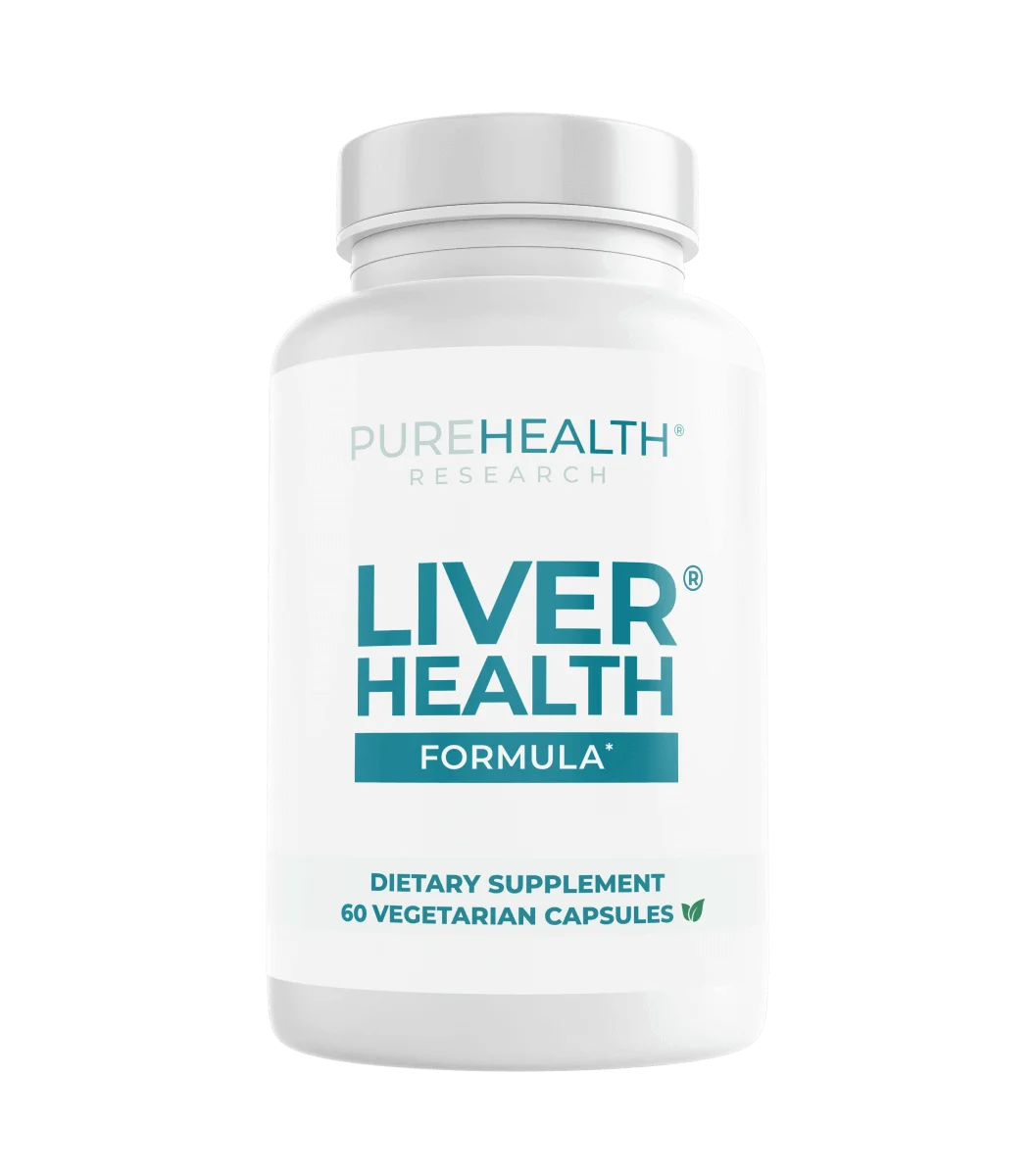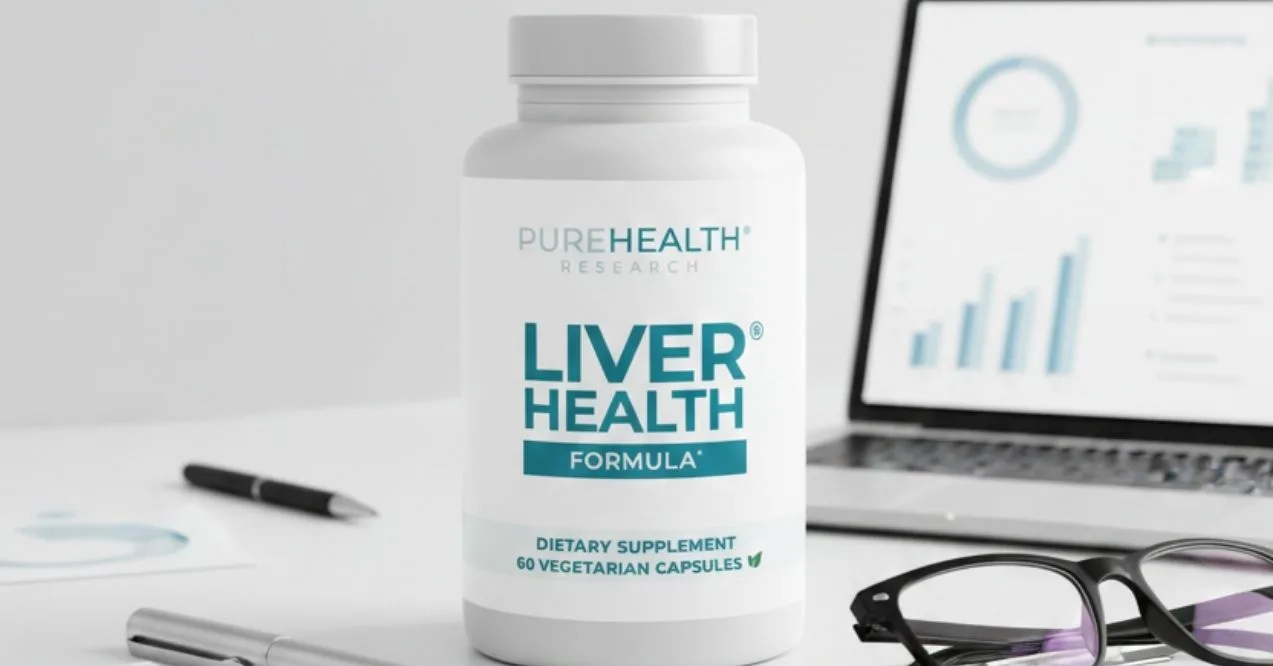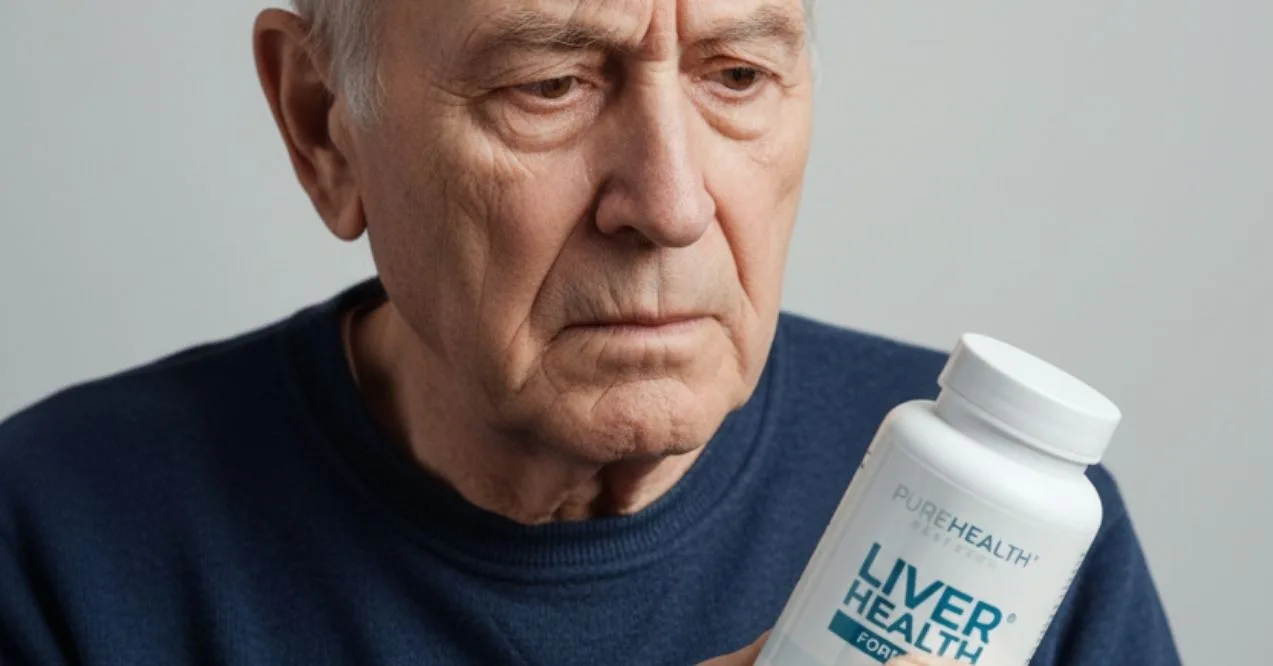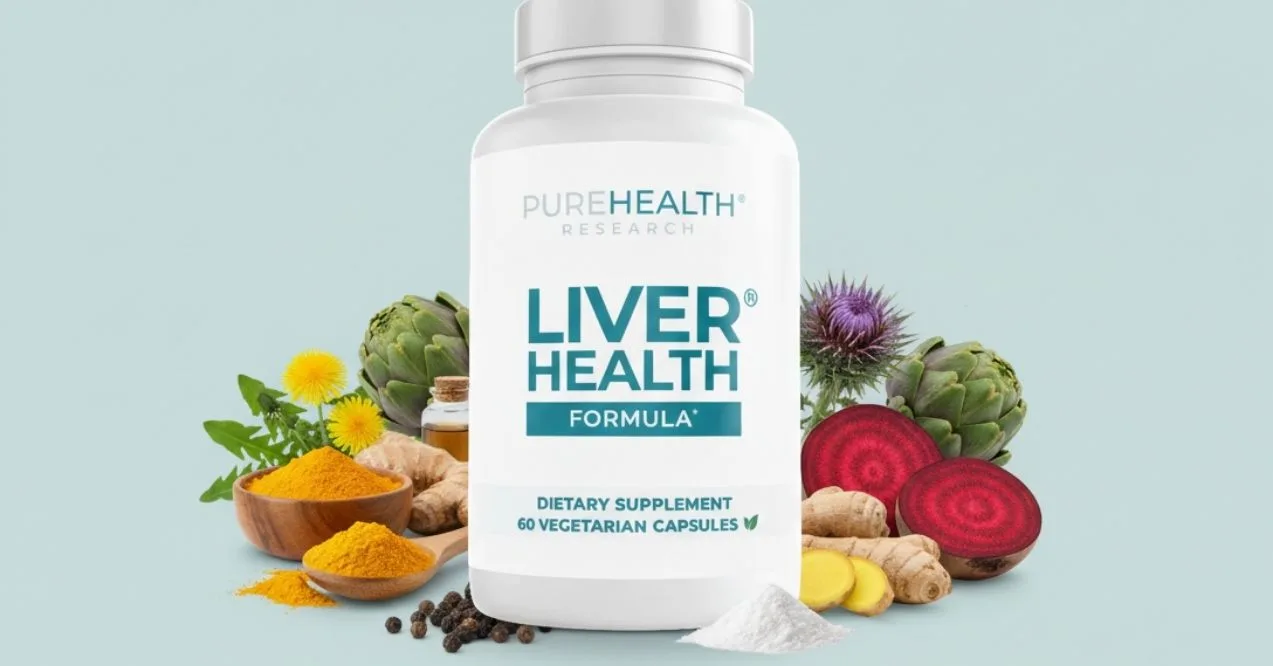How to Lower Liver Enzymes: 7 Best Ways
Are you wondering how to lower liver enzymes? This article will give you the answers you need and more! Get the help you need from PureHealth Research today.
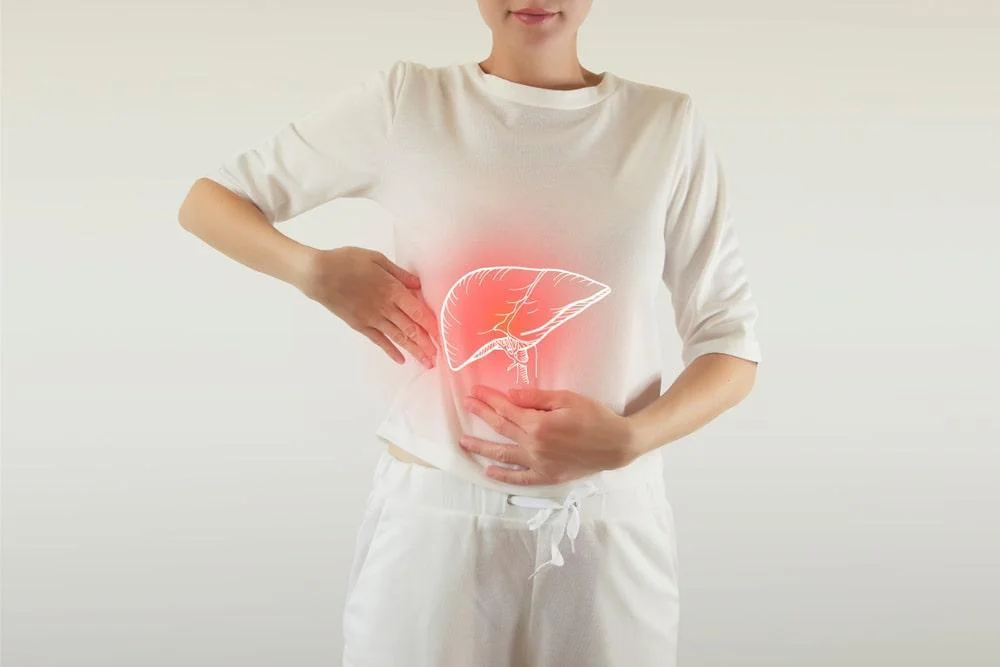

If you Google “how to lower liver enzymes,” you’ll probably find hundreds of solutions. Will these work? How effective are they? These questions are certainly valid. And it makes sense not to put your immediate trust in every source you find on the internet. And that’s why we at PureHealth Research have put together a concise summary for you.
What Are Liver Enzymes?
You’re probably confused as to what liver enzymes actually are. Let’s break things down into simpler terms. They’re proteins that liver cells generate and play a very big role in chemical reactions in the organ. Thanks to them, the liver functions as it should, and doctors are able to evaluate how healthy the organ is.
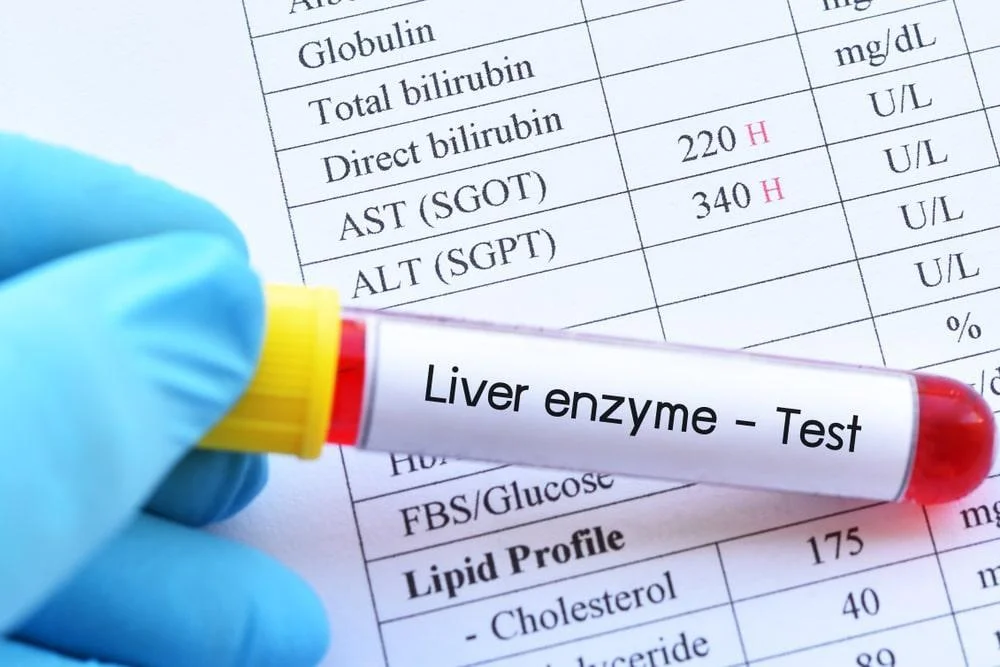
You can determine the health of the liver by conducting a blood test. Health professionals will measure the levels of the following enzymes:
- Alanine aminotransferase (ALT): an enzyme found in liver cells released into the blood when an injury or disease occurs in the organ
- Aspartate aminotransferase (AST): an enzyme common in the liver, heart, muscles, and kidneys and may indicate liver issues
- Alkaline phosphatase (ALP): found in many body tissues, such as the liver, bones, and bile ducts, where elevated levels show disorders in these areas
- Gamma-glutamyl transferase (GGT): an enzyme that one can find in the liver, pancreas, and kidneys, indicating issues in the liver and bile ducts
How to Lower Liver Enzymes
How long does it take to lower liver enzymes? Or perhaps, more specifically, are you wondering how to lower ALT levels? Here are a few proven methods.
1. Keep Away From Alcohol

Having a drink or two each week is fine. However, do you tend to go overboard? If you’re trying to figure out how to reduce high liver enzymes, start by cutting down your alcohol intake. It isn’t challenging if you have your health in mind.
If you’re a social butterfly, plan outings with friends where you won’t have a reason to drink. You can attempt nature hikes or sports-related activities. Life doesn’t have to be boring if you don’t have a drink in your hand! Remember that a healthy liver starts with a good lifestyle.
A damaged liver takes time to recover, so you need to understand that the changes you make have to be constant. Don’t expect miracles overnight. If you can’t avoid parties, change things up by trying some mocktails! You just need to trick your brain into believing you don’t require alcohol to have some fun.
2. Move Your Body as Much as You Can

Here’s a quick and easy answer to how to lower liver enzymes. Make it a point to do some form of exercise every day. It doesn’t have to be anything strenuous. The whole objective is to help your liver recover. It doesn’t matter if you don’t have a gym membership, although accountability does make a difference.
You can begin with short 30-minute workouts daily. Run, walk, or do yoga. As long as you work up a sweat, things will start looking better, and your enzyme levels will reduce. If you can find a partner that will push you to do better, then by all means, start making plans!
Exercising is a habit that you can build as long as you have the willpower. Pick a time that suits you best, whether it’s early in the morning or after work. Identify all your barriers and remove them for a higher rate of success!
3. Consume a Balanced and Healthy Diet
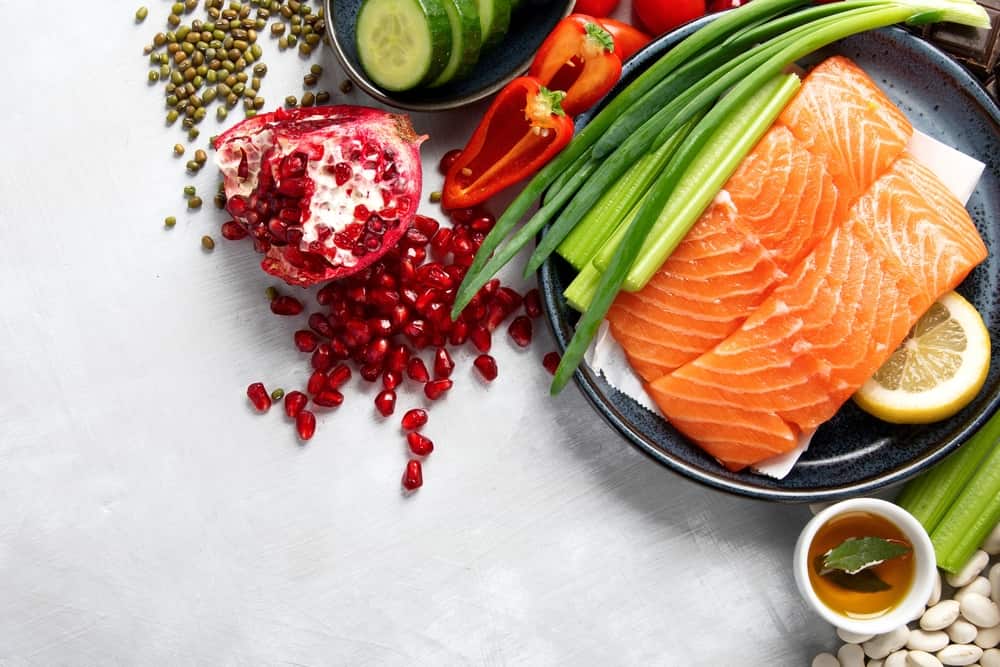
What does it mean to maintain a healthy diet? Does it imply eating a balanced plate filled with carbs, proteins, legumes, and vegetables? Should the meals focus on fish, red meat, or other sources of protein? These, again, are all valid questions.
For your liver, you should consume coffee, green vegetables, and fish. These work great to prevent fat and enzymes from building up. Don’t neglect your fiber intake, as well as nuts. If you can grab hold of turmeric, try to incorporate that into your cooking! This spice works excellent for liver health.
Beans, particularly soy, will reduce the chances of you developing non-alcoholic fatty liver disease (NAFLD). Plus, oatmeal is always a great option for breakfast. It’s delicious and will reduce your liver enzyme levels! Essentially, don’t consume processed food, and ensure you practice moderation. That way, you won’t go wrong!
4. Stay Away From Medications That Can Damage the Liver
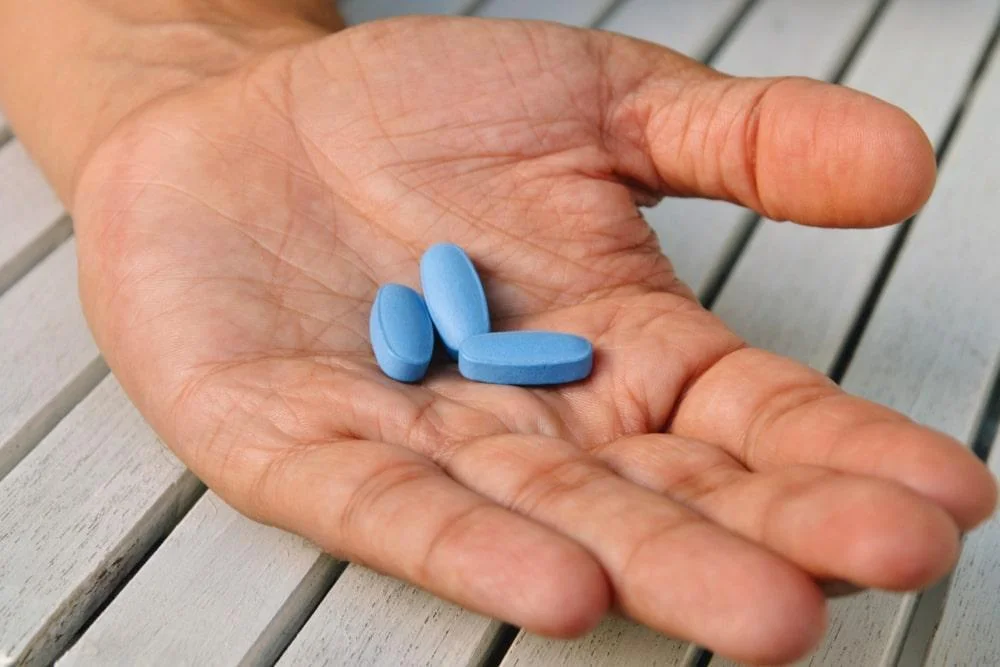
Let’s demonstrate how to decrease liver enzymes, and this explanation may sound surprising. You may consume certain medications to fix your underlying issues, be they for your heart, kidneys, and so on. The problem is that some meds may lead to an increase in liver enzymes.
You may now know this, but even over-the-counter medications can cause issues. Therefore, if you consume a lot of NSAIDs and aspirin, it’s time to look for alternatives. There are natural pain relieving options, like turmeric curcumin, cloves, feverfew, ginger, and others you could try to see what works best for you.
Similarly, prescription drugs such as statins, antibiotics, arthritis drugs, antifungals, niacin, and steroids may lead to high liver enzyme levels. If you’re going through chemotherapy, find out if it puts you at risk of an unhealthy liver.
Remember, herbal supplements may cause issues, too. You should always consult your physician to determine what’s best for your overall health.
5. Consider Getting Vaccinated Against Hepatitis A and B
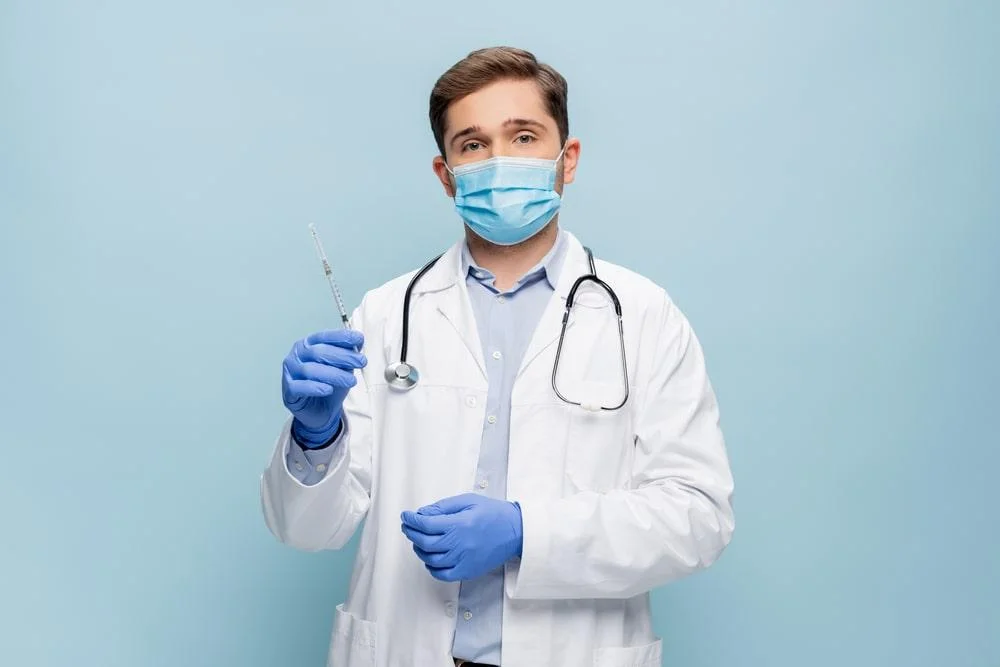
Hepatitis essentially denotes an inflammation of the liver. It can be a severe condition and lead to high liver enzyme levels. Just because hepatitis infections are more common in developing countries, you can still contract it from close, personal contact someone who has been infected.. Getting sick with hepatitis won’t help if you’re figuring out how to lower liver enzymes.
Talk to your doctor to discuss if these vaccines are right for you. This move is especially important if you travel often to the Middle East, Asia, Africa, and South America.
At the same time, you should learn how to identify symptoms of hepatitis. That way, you’ll be able to seek treatment right away before your conditions worsen. Signs of hepatitis include:
- Yellow skin and eyes
- Fever
- Fatigue
- Appetite loss
- Nausea or vomiting
- Dark urine or light-colored stools
- Joint ache
6. Reduce Stress

Is stress a given in today’s day and age? We’re constantly on the go, and it’s difficult to disconnect from work demands, especially since we more or less live online today. That isn’t very healthy, so if you can, find a way to relax.
Relaxing doesn’t have to mean booking a ticket and taking a week off at a beach, although that sounds incredible. It can be as simple as taking a few minutes out of your busy schedule and channeling it toward meditation or a similar activity.
If you have a family on top of your career, the word “relax” may have escaped your vocabulary. However, it’s not too late to find it again. It’s alright to pass the baton and let someone else pick up the slack from time to time. You need to understand that there are ways to get help if you feel overburdened.
7. Take Supplements
This article would be a miss if we neglected to inform you of how to lower liver enzyme levels with the best supplements for liver health. The answer lies in the Liver Health Formula by PureHealth Research. We trust so highly in this product that all customers get a one-year money-back guarantee.
Now, let’s explain why this product, recommended by Dr. Holly Lucille, ND, should be your top choice to reduce liver enzymes. It comes with 11 powerful all-natural ingredients that work together to improve liver markers, reduce oxidative stress, and encourage healthy functions.
After taking this supplement, you’ll feel revitalized because your liver will work the way it should! That’s thanks to the following:
- Turmeric
- Bioperine
- Beet
- Dandelion
- Silymarin
- Artichoke
- Ginger
- Alfalfa
- L-Cysteine
- Glycine
- Vitamin D3
As chemical medications may cause detrimental effects on your liver, it’s wise to seek natural solutions. It also makes sense, then, that 65% of those with liver issues do so. And with a score of 4.9/5 based on over 2,000 happy customers, it’s safe to say that this supplement won’t disappoint.
Research shows the ingredients in Liver Health Formula supplement are safe to use as long as you stick to the recommended dose. Meanwhile, those who are pregnant, breastfeeding, under 18, or those with a chronic medical condition should consult their doctor before using it.
Final Thoughts
There you have it – a clear answer to how to lower AST levels and reduce other liver enzymes. Naturally, a combination of the above solutions is the best. Protecting your body at all costs is vital – start today.
Liver enzymes are proteins generated by liver cells that play a significant role in chemical reactions within the organ. They help the liver function properly and allow doctors to evaluate the health of the organ.
The health of the liver can be determined by conducting a blood test. Health professionals measure the levels of enzymes like Alanine aminotransferase (ALT), Aspartate aminotransferase (AST), Alkaline phosphatase (ALP), and Gamma-glutamyl transferase (GGT) to evaluate liver health.
High liver enzyme levels can be caused by various factors, including liver diseases like cirrhosis and hepatitis, certain medications, high alcohol consumption, viral infections, underlying conditions like hemochromatosis, obesity, and recent drastic changes in weight or lifestyle.
The time it takes to lower liver enzymes can vary based on the individual and the cause of the elevated levels. Some proven methods to lower liver enzymes include reducing alcohol intake, regular exercise, maintaining a balanced diet, avoiding certain medications harmful to the liver, getting vaccinated against hepatitis A and B, managing stress, and considering supplements like the Liver Health Formula by PureHealth Research.
Yes, for liver health, it’s beneficial to consume coffee, green vegetables, fish, fiber, nuts, and turmeric. Beans, especially soy, can reduce the chances of developing non-alcoholic fatty liver disease (NAFLD). Oatmeal is also a good option. It’s essential to avoid processed foods and practice moderation in your diet.
Sign up for our Healthy Living newsletter!
Advertisement. This site offers health, wellness, fitness and nutritional information and is designed for educational purposes only. You should not rely on this information as a substitute for, nor does it replace, professional medical advice, diagnosis, or treatment. If you have any concerns or questions about your health, you should always consult with a physician or other health-care professional. Do not disregard, avoid or delay obtaining medical or health related advice from your health-care professional because of something you may have read on this site. The use of any information provided on this site is solely at your own risk.

